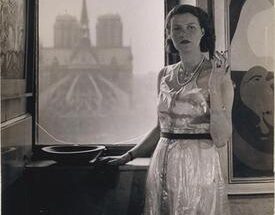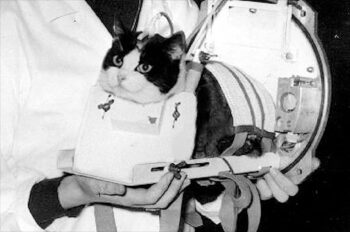
Early Life
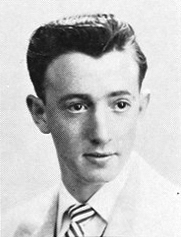
Born Allan Stewart Konigsbergon December 1 1935, in the Brooklyn borough of New York City to Nettie (née Cherry), a bookkeeper at her family’s delicatessen, and Martin Konigsberg, a jewelry engraver and waiter. His family was Jewish, and his grandparents immigrated to the US from Austria and Panevėžys, Lithuania and spoke Yiddish, Hebrew, and German. Both of Allen’s parents were born and raised on the Lower East Side of Manhattan. Along with his sister, Letty (b. 1943) they were raised in Midwood, Brooklyn.
His childhood was not particularly happy as his parents did not get along, and he had a rocky relationship with his stern andtemperamental mother. While attending Hebrew school for eight years, he went to Public School 99 (now the Isaac Asimov School for Science and Literature) and to Midwood High School where he graduated in 1953. Unlike his comic persona, he was more interested in baseball than school and his strong arms ensured he was first to be picked for a team. He impressed students with his extraordinary talent with cards and magic tricks.
For pay, he wrote jokes (or “gags”) for agent David O. Alber, who sold them to newspaper columnists. At the age of 17 he legally changed his name to Heywood Allen and later began to call himself Woody Allen. According to Allen, his first published joke read: “Woody Allen says he ate at a restaurant that had O.P.S. prices—over people’s salaries.” After high school, he attended New York University, studying communication and film in 1953, before dropping out after failing the course “Motion Picture Production”. He then studied film at City College of New York in 1954 but left before the end of the first semester. His knowledge came mostly from self-teaching rather than studying in the classroom.
Career
Comedy writing
Allen began writing short jokes when he was 15 and the following year began sending them to various Broadway writers to see if they’d be interested in buying any. One of those writers was Abe Burrows, coauthor of Guys and Dolls, who wrote, “Wow! His stuff was dazzling.” Burrows then wrote Allen letters of introduction to Sid Caesar, Phil Silvers, and Peter Lind Hayes, who immediately sent Allen a check for just the jokes Burrows included as samples.
As a result of the jokes Allen mailed to various writers he was invited at the age of 19, to join the NBC Writer’s Development Program in 1955, followed by a job on The NBC Comedy Hour in Los Angeles. He was later hired as a full-time writer for humorist Herb Shriner, initially earning $25 a week.
He began writing scripts for The Ed Sullivan Show, The Tonight Show, specials for Sid Caesar post-Caesar’s Hour (1954–1957), and other television shows. By the time he was working for Caesar, he was earning $1,500 a week. He worked alongside Mel Brooks, Carl Reiner, Larry Gelbart, and Neil Simon. He also worked with Danny Simon, whom Allen credits for helping form his writing style. He also wrote for the Candid Camera television show, and appeared in some episodes.
Allen wrote jokes for the Buddy Hackett sitcom Stanley and for The Pat Boone Chevy Showroom, and in 1958 co-wrote a few Sid Caesar specials with Larry Gelbart. After writing for many of television’s leading comedians and comedy shows, Allen was slowly gained a reputation as a “genius”, as said by composer Mary Rodgers. According to producer Max Liebman when given an assignment for a show Allen would leave and come back the next day with “reams of paper”. Similarly, after he wrote for Bob Hope, Hope called him “half a genius”.
His daily writing routine could last as long as 15 hours, and he could focus and write anywhere necessary. Dick Cavett was amazed at Allen’s capacity to write: “He can go to a typewriter after breakfast and sit there until the sun sets and his head is pounding, interrupting work only for coffee and a brief walk, and then spend the whole evening working.”
When Allen wrote for other comedians, they would use eight out of ten of his jokes. When he began performing as a stand-up, he was much more selective, typically using only one out of ten jokes. He estimated that to prepare for a 30-minute show, he spent six months of intensive writing. Allen enjoyed writing, however, despite the work: “Nothing makes me happier than to tear open a ream of paper. And I can’t wait to fill it! I love to do it.”
Allen started writing short stories and cartoon captions for magazines such as The New Yorker, inspired by the work of New Yorker humorists S. J. Perelman, George S. Kaufman, Robert Benchley, and Max Shulman, whose material he modernized. His collections of short pieces includes Getting Even, Without Feathers, Side Effects, and Mere Anarchy. In 2010 Allen released audio versions of his books in which he read 73 selections. He was nominated for a Grammy Award for Best Spoken Word Album.
Stand-up Comedy
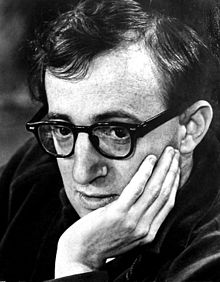
From 1960 to 1969 Allen performed as a stand-up comedian to supplement his comedy writing. His contemporaries during those years included Lenny Bruce, Shelley Berman, the team of Mike Nichols and Elaine May, Joan Rivers and Mort Sahl (his personal favorite). Comedy historian Gerald Nachman notes that Allen, while not the first to do stand-up, would eventually have greater impact than all the others in the 1960s, and would redefine the meaning of stand-up comedy: “He helped turn it into biting, brutally honest satirical commentary on the cultural and psychological tenor of the times.”
After Allen was taken under the wing of his new manager, Jack Rollins, Rollins suggested he perform his written jokes as a stand-up. Allen was reluctant at first, but after seeing Mort Sahl on stage, he felt safer to give it a try: “I’d never had the nerve to talk about it before. Then Mort Sahl came along with a whole new style of humor, opening up vistas for people like me.” Allen made his professional stage debut at the Blue Angel nightclub in Manhattan in October 1960, where comedian Shelley Berman introduced him as a young television writer who would perform his own material.
His early stand-up shows with his different style of humor were not always well received or understood by his audiences. Unlike other comedians, Allen spoke to his audiences in a gentle and conversational style, often appearing to be searching for words, although he was well rehearsed. He acted “normal”, dressed casually, and made no attempt to project a stage “personality”. “I put very little premium on improvisation,” he told Studs Terkel. His jokes were created from life experiences, and typically presented with a dead serious demeanor that made them funnier: “I don’t think my family liked me. They put a live teddy bear in my crib.”
The subjects of his jokes were rarely topical, political or socially relevant. Unlike Bruce and Sahl, he did not discuss current events such as civil rights, women’s rights, the Cold War, or Vietnam. Comedy screenwriter Larry Gelbart compared Allen’s style to Elaine May: “He just styled himself completely after her,” he said. He also made frequent fun of intellectuals.
Allen developed an anxious, nervous, and intellectual persona for his stand-up act, a successful move that secured regular gigs for him in nightclubs and on television. He brought innovation to the comedy monologue genre and his stand-up comedy is considered influential. Allen first appeared on The Tonight Show Starring Johnny Carson on November 1, 1963, and over nine years his guest appearances included 17 in the host’s chair. He subsequently released three LP albums of live nightclub recordings: the self-titled Woody Allen (1964), Volume 2 (1965), and The Third Woody Allen Album (1968), recorded at a fund-raiser for Senator Eugene McCarthy’s presidential run.
In 1965 Allen had his own TV special in Great Britain, The Woody Allen Show. In 1967 he hosted an episode of The Kraft Music Hall where he would intersperse humor with interviews of famous people, including conservative writer William F. Buckley. In 1969 he hosted his first American special for CBS television which included a humorous spot with The Rev. Billy Graham.
He also performed stand-up comedy on other series, including The Andy Williams Show and The Perry Como Show, where he interacted with other guests and occasionally sang. In 1971 Allen hosted one of his final Tonight Shows, which included as guests Bob Hope and James Coco. Life magazine put Allen on the cover of its March 21, 1969, issue.
Playwright
In 1966 Allen wrote the play Don’t Drink the Water. The play starred Lou Jacobi, Kay Medford, Anita Gillette and Allen’s future movie co-star Tony Roberts. A film adaptation of the play, directed by Howard Morris, was released in 1969, starring Jackie Gleason. Because he was not particularly happy with that version, in 1994 Allen directed and starred in a second version for television, with Michael J. Fox and Mayim Bialik.
The next play Allen wrote for Broadway was Play It Again, Sam, in which he also starred. The play opened on February 12, 1969, and ran for 453 performances. It featured Diane Keaton and Roberts.
In 1981 Allen’s play The Floating Light Bulb premiered on Broadway and ran for 65 performances. While receiving mixed reviews, it gave autobiographical insight into Allen’s childhood, specifically his fascination with magic tricks.
On October 20, 2011, Allen’s one-act play Honeymoon Motel opened on Broadway as part of a larger piece titled Relatively Speaking, with two other one-act plays, one by Ethan Coen and one by Elaine May.
On March 11, 2014, Allen’s musical Bullets Over Broadway opened on Broadway at the St. James Theatre. The show starred Zack Braff, Nick Cordero, and Betsy Wolfe. Allen received a Tony Award nomination for Best Book of a Musical. The show received six Tony nominations in total.
Early Filmography
Allen’s first movie was the Charles K. Feldman production What’s New, Pussycat? (1965) for which he wrote the screenplay. He was disappointed with the final product, which prompted him to direct every film he wrote thereafter. Allen’s first directorial effort was What’s Up, Tiger Lily? (1966), co-written with Mickey Rose. In 1967 Allen played Jimmy Bond in the 007 spoof Casino Royale.
In 1969 Allen directed, starred in, and co-wrote (with Mickey Rose) Take the Money and Run, which received positive reviews. He later signed a deal with United Artists to produce several films. Those films eventually became Bananas (1971), Everything You Always Wanted to Know About Sex* (*But Were Afraid to Ask) (1972), Sleeper (1973), and Love and Death (1975).
In 1972 Allen wrote and starred in the film version of Play It Again, Sam, directed by Herbert Ross and co-starring Diane Keaton. In 1976 he starred as cashier Howard Prince in The Front, directed by Martin Ritt.
I don’t like meeting heroes. There’s nobody I want to meet and nobody I want to work with—I’d rather work with Diane Keaton than anyone—she’s absolutely great, a natural.
Woody Allen (1976)
Then came two of Allen’s most popular films: Annie Hall and Manhattan. Annie Hall (1977) won four Academy Awards, including Best Picture, Best Actress in a Leading Role for Diane Keaton, Best Original Screenplay and Best Director for Woody Allen. Annie Hall set the standard for modern romantic comedy and ignited a fashion trend with the clothes Keaton wore in the film.
Manhattan (1979) is a black-and-white film often viewed as an homage to New York City. As in many Allen films, the main protagonists are upper-middle class writers and academics. Manhattan focuses on the complicated relationship between middle-aged Isaac Davis (Allen) and 17-year-old Tracy (Mariel Hemingway), and co-stars Diane Keaton.
1980’s
Allen’s 1980s films, even the comedies, have somber and philosophical undertones, and are influenced by European directors, specifically Ingmar Bergman and Federico Fellini. Stardust Memories was based on 8½, which it parodies, and Wild Strawberries. A Midsummer Night’s Sex Comedy was adapted from Smiles of a Summer Night. In Hannah and Her Sisters, part of the film’s structure and background is borrowed from Fanny and Alexander. Amarcord inspired Radio Days while September resembles Autumn Sonata.
Mia’s a good actress who can play many different roles. She has a very good range, and can play serious to comic roles. She’s also very photogenic, very beautiful on screen. She’s just a good realistic actress… and no matter how strange and daring it is, she does it well.
Woody Allen (1993)
A Midsummer Night’s Sex Comedy (1982) was the first movie Allen made starring Mia Farrow. He next produced a vividly idiosyncratic tragicomic parody of documentary, Zelig, in which he starred as a Leonard Zelig, a man who has the ability to transform his appearance to that of the people surrounding him.
Allen has combined tragic and comic elements in such films as Hannah and Her Sisters (1986) and Crimes and Misdemeanors (1989), in which he tells two stories that connect at the end. He also made three films about show business: Broadway Danny Rose, The Purple Rose of Cairo, and Radio Days. The Purple Rose of Cairo was named by Time as one of the 100 best films of all time. Allen called it one of his three best films with Stardust Memories and Match Point. In 1989 Allen and directors Francis Ford Coppola and Martin Scorsese made New York Stories, an anthology film about New Yorkers. Allen’s short, Oedipus Wrecks, was praised by film critic Vincent Canby of The New York Times.
1990’s
Allen’s 1991 film Shadows and Fog was a black-and-white homage to the German expressionists and features the music of Kurt Weill. Allen then made his critically acclaimed comedy-drama Husbands and Wives (1992), which received two Oscar nominations (Best Supporting Actress for Judy Davis and Best Original Screenplay for Allen). Manhattan Murder Mystery (1993) combined suspense with dark comedy and marked the return of Diane Keaton, Alan Alda and Anjelica Huston.
He returned to lighter movies like Bullets over Broadway (1994), which earned an Academy Award nomination for Best Director, followed by a musical, Everyone Says I Love You (1996). The comedy Mighty Aphrodite (1995), in which Greek drama plays a large role, won an Academy Award for Best Supporting Actress for Mira Sorvino. Allen’s 1999 jazz-based comedy-drama Sweet and Lowdown was nominated for two Academy Awards, for Sean Penn (Best Actor) and Samantha Morton (Best Supporting Actress). Allen then veered into darker satire toward the end of the decade with Deconstructing Harry (1997) and Celebrity (1998).
2000’s
Small Time Crooks (2000) was Allen’s first film with the DreamWorks studio. It was a relative financial success, grossing over $17 million domestically, but Allen’s next four films foundered at the box office, including his most costly film, The Curse of the Jade Scorpion. Hollywood Ending, Anything Else, and Melinda and Melinda have “rotten” ratings on film-review website Rotten Tomatoes and each earned less than $4 million domestically.
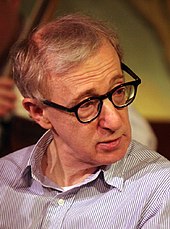
Match Point (2005) was one of Allen’s most successful films of the decade, gathering positive reviews. Set in London, it starred Jonathan Rhys Meyers and Scarlett Johansson. The film earned more than $23 million domestically and over $62 million in international box office sales. Match Point earned Allen his first Academy Award nomination since 1998, for Best Writing – Original Screenplay, along with directing and writing nominations at the Golden Globes.
Allen reached an agreement to film Vicky Cristina Barcelona in Avilés, Barcelona, and Oviedo, Spain, where shooting started on July 9, 2007. The movie featured Scarlett Johansson, Javier Bardem, Rebecca Hall and Penélope Cruz. Vicky Cristina Barcelona won Best Motion Picture – Musical or Comedy at the Golden Globe awards, while Cruz received the Academy Award for Best Supporting Actress.
In April 2008 he began filming Whatever Works, a film aimed more toward older audiences, starring Larry David, Patricia Clarkson, and Evan Rachel Wood. Whatever Works was written by Allen in the 1970s, and David’s character was written for Zero Mostel (who died the year Annie Hall came out).
In 2001 he was elected a Fellow of the American Academy of Arts and Sciences.
2010’s
You Will Meet a Tall Dark Stranger, filmed in London, stars Antonio Banderas, Josh Brolin, Anthony Hopkins, Anupam Kher, Freida Pinto and Naomi Watts. Filming started in July 2009 and the theatrical release in the US was on September 23, 2010, following a Cannes debut in May 2010, and a screening at the Toronto International Film Festival on September 12, 2010.
Allen announced that his next film would be titled Midnight in Paris starring Owen Wilson, Marion Cotillard, Rachel McAdams, Michael Sheen, Corey Stoll, Allison Pill, Tom Hiddleston, Adrien Brody, Kathy Bates, and Carla Bruni. It debuted at the 2011 Cannes Film Festival on May 12, 2011. The film was almost universally praised, receiving a 93% on Rotten Tomatoes. Midnight in Paris won the Academy Award for Best Original Screenplay and became his highest-grossing film, making $151 million worldwide on a $17 million budget.
His next film, To Rome with Love, was a Rome-set comedy released in 2012. The film was structured in four vignettes featuring dialogue in both Italian and English. It marked Allen’s return to acting since his last role in Scoop.
Blue Jasmine debuted in July 2013 starring Alec Baldwin, Cate Blanchett, Louis C.K., Andrew Dice Clay, Sally Hawkins, and Peter Sarsgaard. Opening to critical acclaim, the film earned Allen another Academy Award nomination for Best Original Screenplay, and Blanchett received the Academy Award for Best Actress. Allen co-starred with John Turturro in Fading Gigolo (written and directed by Turturro) which premiered in September 2013. The romantic comedy Magic in the Moonlight was shot by Allen in 2013 with Emma Stone, and Colin Firth in Nice, France.
It’s really cool to work with a director who’s done so much, because he knows exactly what he wants. The fact that he does one shot for an entire scene—[and] this could be a scene with eight people and one to two takes—it gives you a level of confidence… he’s very empowering
Blake Lively on acting in Café Society
From July to August 2014 Allen filmed the mystery drama Irrational Man with Joaquin Phoenix, Emma Stone, Parker Posey and Jamie Blackley. His next film Café Society starred an ensemble cast, including Jesse Eisenberg, Kristen Stewart, and Blake Lively. Bruce Willis was set to co-star, but was replaced by Steve Carell during filming. The film is distributed by Amazon Studios, and opened the 2016 Cannes Film Festival on May 11, 2016 (the third time Allen has opened the festival).
On January 14, 2015, it was announced that Allen would write and direct a TV series of half-hour episodes for Amazon Studios, marking the first time he has developed a television show. On September 30, 2016, Amazon Video debuted Allen’s first television series production, Crisis in Six Scenes which stars Allen alongside Elaine May and Miley Cyrus.
In September 2016 Allen started filming Wonder Wheel, set in the 1950s in Coney Island and starring Kate Winslet and Justin Timberlake. The film served as the closing night selection at the 55th New York Film Festival on October 15, 2017 and was theatrically released on December 1, 2017.
His film A Rainy Day in New York, starring Timothée Chalamet, Selena Gomez, Elle Fanning, Jude Law, Diego Luna, Liev Schreiber and Rebecca Hall began production in New York in September 2017.
In February 2019 it was announced that Amazon Studios had dropped A Rainy Day in New York and would no longer finance, produce, or distribute films with Allen. He filed a lawsuit for $68 million, alleging Amazon gave “vague reasons” to terminate the contract, dropped the film over “a 25-year old, baseless allegation” and did not make payments. The film was scheduled to screen at European film festivals, including France’s Deauville American Film Festival on opening day on September 6, 2019.
In February 2019 Allen teamed with Mediapro, an independent Spanish TV-film company, to develop his next film, Rifkin’s Festival. At the end of October 2019, Rifkin’s Festival completed filming and entered post-production.
Theatre
While best known for his films, Allen has enjoyed a successful career in theatre starting as early as 1960, when he wrote sketches for the revue From A to Z. His first great success was Don’t Drink the Water, which opened in 1968, and ran for 598 performances for almost two years on Broadway. His success continued with Play It Again, Sam, which opened in 1969, starring Allen and Diane Keaton. The show played for 453 performances and was nominated for three Tony Awards.
In the 1970s Allen wrote a number of one-act plays, most notably God and Death, which were published in his 1975 collection Without Feathers. In 1981 Allen’s play The Floating Light Bulb opened on Broadway. It was both a critical success and a commercial flop. Despite two Tony Award nominations, a Tony win for the acting of Brian Backer, the play only ran for 62 performances.
After a long hiatus from the stage, Allen returned to the theatre in 1995 with the one-act Central Park West, an installment in an evening of theatre, Death Defying Acts, that also included new work by David Mamet and Elaine May.
For the next few years Allen had no direct involvement with the stage, but notable productions of his work were staged. A production of God was staged at The Bank of Brazil Cultural Center in Rio de Janeiro and theatrical adaptations of Allen’s films Bullets Over Broadway and September were produced in Italy and France respectively, without Allen’s involvement. In 2003 Allen finally returned to the stage with Writer’s Block, an evening of two one-acts (Old Saybrook and Riverside Drive) that played Off-Broadway. The production marked his stage-directing debut and sold out the entire run. In 2003 reports of Allen writing the book for a musical based on Bullets Over Broadway surfaced and it opened in New York in 2014. The musical closed on August 24, 2014, after 156 performances and 33 previews.
In 2004 Allen’s first full-length play since 1981, A Second Hand Memory was directed by Allen and enjoyed an extended run Off-Broadway. In June 2007 it was announced that Allen would direct two more creative debuts in the theatre, a work he did not write and an opera (a reinterpretation of Puccini’s Gianni Schicchi for the Los Angeles Opera which debuted at the Dorothy Chandler Pavilion on September 6, 2008). His production of the opera opened the Festival of Two Worlds in Spoleto, Italy, in June 2009.
In October 2011 Allen’s one-act play Honeymoon Motel premiered as one in a series of one-act plays on Broadway titled Relatively Speaking. Also contributing to the plays were Elaine May and Ethan Coen with John Turturro as the director. In February 2012 Allen began the adaptation of Bullets over Broadway into a Broadway musical which opened on April 10 2014, and closed on August 24 2014.
Music

Allen is a passionate fan of jazz, a music genre which appears often in the soundtracks to his films. He began playing clarinet as a child and took his stage name from clarinetist Woody Herman. He has performed publicly at least since the late 1960s, including with the Preservation Hall Jazz Band on the soundtrack of Sleeper.
Woody Allen and his New Orleans Jazz Band have been playing each Monday evening at the Carlyle Hotel in Manhattan for many years specializing in New Orleans jazz from the early 20th century.
The documentary film Wild Man Blues (directed by Barbara Kopple) chronicles a 1996 European tour by Allen and his band, as well as his relationship with Previn. The band released the albums The Bunk Project (1993) and the soundtrack of Wild Man Blues (1997).
Allen and his band played at the Montreal International Jazz Festival on two consecutive nights in June 2008. For many years he wanted to make a film about the origins of jazz in New Orleans. Tentatively titled American Blues, the film would follow the different careers of Louis Armstrong and Sidney Bechet. Allen stated that the film would cost between $80 and $100 million and is therefore unlikely to be made.
Works
Theater
| Year | Title | Credit | Venue |
| 1960 | From A to Z | Writer (book) | Plymouth Theatre |
| 1966 | Don’t Drink the Water | Writer | Coconut Grove Playhouse Morosco Theatre |
| 1969 | Play It Again, Sam | Writer and performer (Allan Felix) | Broadhurst Theatre |
| 1975 | God | Writer | — |
| 1975 | Death | Writer | — |
| 1981 | The Floating Light Bulb | Writer | Vivian Beaumont Theater |
| 1995 | Central Park West | Writer | Variety Arts Theatre |
| 2003 | Old Saybrook | Writer and director | Atlantic Theatre Company |
| 2003 | Riverside Drive | Writer and director | Atlantic Theatre Company |
| 2004 | A Second Hand Memory | Writer and director | Atlantic Theatre Company |
| 2008 | Gianni Schicchi | Director | Dorothy Chandler Pavilion |
| 2011 | “Honeymoon Motel” | Writer | Brooks Atkinson Theatre |
| 2014 | Bullets Over Broadway | Writer (book) | St. James Theatre |
| 2015 | Gianni Schicchi | Director | Teatro Real |
| 2019 | Gianni Schicchi | Director | La Scala |
Filmography
| Year | Title | Credit |
| 1966 | What’s Up, Tiger Lily? | Director Writer Actor |
| 1969 | Take the Money and Run | Director Writer Actor |
| 1971 | Bananas | Director Writer Actor |
| 1972 | Play it again, Sam | Writer Actor |
| 1972 | Everything You Always Wanted to Know About Sex* (*But Were Afraid to Ask | Director Writer Actor |
| 1973 | Sleeper | Director Writer Actor |
| 1975 | Love and Death | Director Writer Actor |
| 1976 | The Front | Actor |
| 1977 | Annie Hall | Director Writer Actor |
| 1978 | Interiors | Director Writer |
| 1979 | Manhattan | Director Writer Actor |
| 1980 | Stardust Memories | Director Writer Actor |
| 1982 | A Midsummer Night’s Sex Comedy | Director Writer |
| 1983 | Zelig | Director Writer Actor |
| 1984 | Broadway Danny Rose | Director Writer Actor |
| 1985 | The Purple Rose of Cairo | Director Writer |
| 1986 | Hannah and Her Sisters | Director Writer Actor |
| 1987 | Radio Days | Director Writer Actor |
| 1987 | September | Director Writer |
| 1988 | Another Woman | Director Writer |
| 1989 | Crimes and Misdemeanors | Director Writer Actor |
| 1989 | New York Stories | Director Writer Actor |
| 1990 | Alice | Director Writer |
| 1991 | Shadows and Fog | Director Writer Actor |
| 1992 | Husbands and Wives | Director Writer Actor |
| 1993 | Manhattan Murder Mystery | Director Writer Actor |
| 1994 | Bullets Over Broadway | Director Writer |
| 1995 | Mighty Aphrodite | Director Writer Actor |
| 1996 | Everyone Says I Love You | Director Writer Actor |
| 1997 | Deconstructing Harry | Director Writer Actor |
| 1998 | Celebrity | Director Writer |
| 1999 | Sweet and Lowdown | Director Writer Actor |
| 2000 | Small Time Crooks | Director Writer Actor |
| 2001 | The Curse of the Jade Scorpion | Director Writer Actor |
| 2002 | Hollywood Ending | Director Writer Actor |
| 2003 | Anything Else | Director Writer Actor |
| 2004 | Melinda and Melinda | Director Writer |
| 2005 | Match Point | Director Writer |
| 2006 | Scoop | Director Writer Actor |
| 2007 | Cassandra’s Dream | Director Writer |
| 2008 | Vicky Cristina Barcelona | Director Writer |
| 2009 | Whatever Works | Director Writer |
| 2010 | You Will Meet a Tall Dark Stranger | Director Writer |
| 2011 | Midnight in Paris | Director Writer |
| 2012 | To Rome with Love | Director Writer Actor |
| 2013 | Blue Jasmine | Director Writer |
| 2013 | Fading Gigolo | Actor |
| 2014 | Magic in the Moonlight | Director Writer |
| 2015 | Irrational Man | Director Writer |
| 2016 | Café Society | Director Writer Actor |
| 2016 | Crisis in Six Scenes | Director Writer Actor |
| 2017 | Wonder Wheel | Director Writer |
| 2019 | A Rainy Day in New York | Director Writer |
| 2020 | Rifkin’s Festival | Director Writer Actor |

